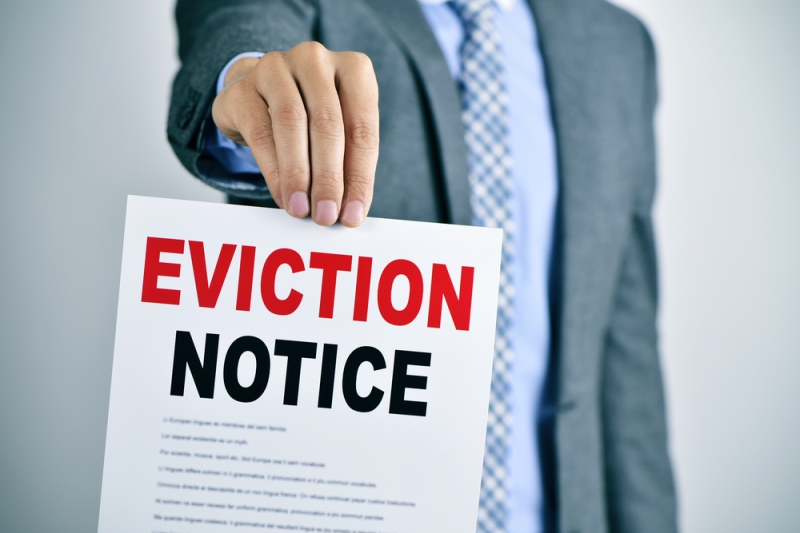How long does an eviction stay on your record?
An eviction record is a document that shows that a person has been evicted from their home. Eviction is the process of forcing someone to leave their home.
This can be done because the person has not paid their rent, or because they have caused damage to the property.
Eviction records are kept by local authorities, and they can be used to prove that someone has been evicted.
We have a new location: Credit Repair San Diego CA is now open!
They can also be used to show that someone is a bad tenant, or has a history of causing problems. Eviction records can also affect a person’s credit score, and make it difficult for them to find new housing.
If you are facing eviction, it is important to get help from a lawyer. They can help you understand your rights, and they can represent you in court.
If you are evicted, it is also important to get a copy of your eviction record. This will document the fact that you have been evicted, and it can be used to prove it in the future.
Evictions can have a profound impact on an individual’s life, affecting their financial well-being, housing prospects, and emotional stability. If you’ve experienced an eviction or are concerned about its repercussions, it’s essential to understand how long an eviction can stay on your record and how it may affect your future endeavors.
1. Introduction
Facing eviction is a distressing situation that can arise due to various circumstances, such as failure to pay rent, lease violations, or property damage. The eviction process involves legal procedures that differ from one jurisdiction to another. Understanding the basics of evictions and their consequences is crucial for individuals seeking to navigate the aftermath successfully.
2. Understanding Evictions
2.1 What is an eviction?
Eviction refers to the legal process through which a landlord removes a tenant from a rental property. It typically involves court proceedings, notices, and adherence to specific legal requirements. Evictions can tarnish a tenant’s rental history and impact their ability to secure future housing.
2.2 Reasons for Eviction
Evictions can occur for various reasons, including nonpayment of rent, violating the terms of the lease agreement, causing property damage, or engaging in illegal activities. Each jurisdiction has its own laws and regulations regarding the permissible grounds for eviction.
2.3 Legal process of eviction
The legal process of eviction typically involves the landlord serving the tenant with a notice to cure or quit, followed by a formal eviction lawsuit if the issue remains unresolved. The court may issue a judgment, granting possession of the property back to the landlord and potentially awarding monetary damages.
3. The Impact of Eviction
Experiencing an eviction can have far-reaching consequences that extend beyond the immediate housing situation. It’s crucial to be aware of the potential impacts to better prepare for the challenges that lie ahead.
3.1 Financial consequences
One significant impact of an eviction is the financial burden it places on individuals. Apart from the unpaid rent or fees associated with the eviction process, tenants may face difficulties in securing future housing due to damaged credit and rental history.
3.2 Rental and housing challenges
An eviction can make it challenging to find new rental housing. Landlords often conduct background checks and may be hesitant to rent to individuals with a history of eviction. Additionally, evictions may lead to being placed on tenant blacklists or databases, making it even harder to secure housing in the future.
3.3 Emotional toll
Evictions can take a significant emotional toll on individuals and families. The stress, anxiety, and sense of instability associated with losing one’s home can have long-lasting effects on mental well-being and overall quality of life.
4. How Long Does an Eviction Stay?
The duration of an eviction’s impact on your record can vary based on several factors. Understanding these factors can help you plan and take appropriate steps to mitigate the effects.
4.1 Eviction on credit reports
An eviction can remain on your credit report for up to seven years, depending on the credit reporting agency. This negative mark can significantly impact your credit score and make it difficult to obtain loans, credit cards, or favorable interest rates.
4.2 Duration on public records
Evictions can also appear on public records, which are accessible to potential landlords, employers, and others. The duration of this visibility depends on local laws and regulations, but it can typically range from three to seven years.
4.3 Impact on future housing
The presence of an eviction on your record can make it challenging to secure housing in the future. Many landlords and property management companies consider eviction history when evaluating rental applications. However, individual circumstances, time elapsed since the eviction, and efforts to rebuild credit and rental history can influence their decision.
5. How to Minimize the Effects
While an eviction can have significant consequences, there are steps you can take to minimize its impact on your life and increase your chances of finding suitable housing in the future.
5.1 Rebuilding credit
To rebuild your credit after an eviction, focus on making timely payments on any remaining debts, such as outstanding balances or collections. Consider obtaining a secured credit card or seeking credit counseling services to improve your creditworthiness over time.
5.2 Seeking housing after eviction
Finding housing after an eviction can be challenging but not impossible. Exploring alternative housing options, such as renting from individual landlords or seeking housing assistance programs, may increase your chances of finding a new place to call home.
5.3 Legal assistance
If you believe your eviction was unjust or illegal, seeking legal assistance may be advisable. Consulting with a tenant’s rights organization or an attorney who specializes in housing law can help you understand your rights, assess the situation, and explore potential remedies.
6. Conclusion
Experiencing an eviction can be a challenging and life-altering event. Understanding how long an eviction can stay on your record is crucial for planning and preparing for the future. While the duration of its impact may vary, taking proactive steps to rebuild your credit, seek appropriate housing, and explore legal assistance can help mitigate the consequences.
7. FAQs
Q1. Can I remove an eviction from my record? A1. Generally, you cannot remove a valid eviction from your record. However, you can focus on rebuilding your credit and rental history to improve your chances of securing future housing.
Q2. Will an eviction prevent me from renting in the future? A2. While an eviction can make it more challenging to rent in the future, it does not necessarily disqualify you. Some landlords may be willing to consider your application based on your efforts to rebuild and demonstrate responsible tenancy.
Q3. How can I explain an eviction to potential landlords? A3. When discussing an eviction with potential landlords, it’s important to be honest and provide context. Explain any mitigating circumstances and emphasize the steps you’ve taken to improve your situation.
Q4. Can an eviction be expunged from public records? A4. Expunging an eviction from public records is generally not possible. However, the impact may diminish over time, especially as you demonstrate responsible tenancy and rebuild your rental history.
Q5. Should I hire a lawyer for eviction proceedings? A5. While legal representation is not always required, it can be beneficial to consult with an attorney who specializes in housing law. They can provide guidance on your rights, help you navigate the eviction process, and explore any potential defenses.
So, how long does an eviction stay on your record? The answer may surprise you. And what can you do to get it removed? Unfortunately, the process is not always easy, but there are ways to make it happen.
We hope this article has been helpful and that you will avoid eviction in the first place by following our tips. But if you find yourself struggling to pay rent, know that there are alternatives available to you.
[wpi_designer_button slide_id=6350]







Leave A Comment